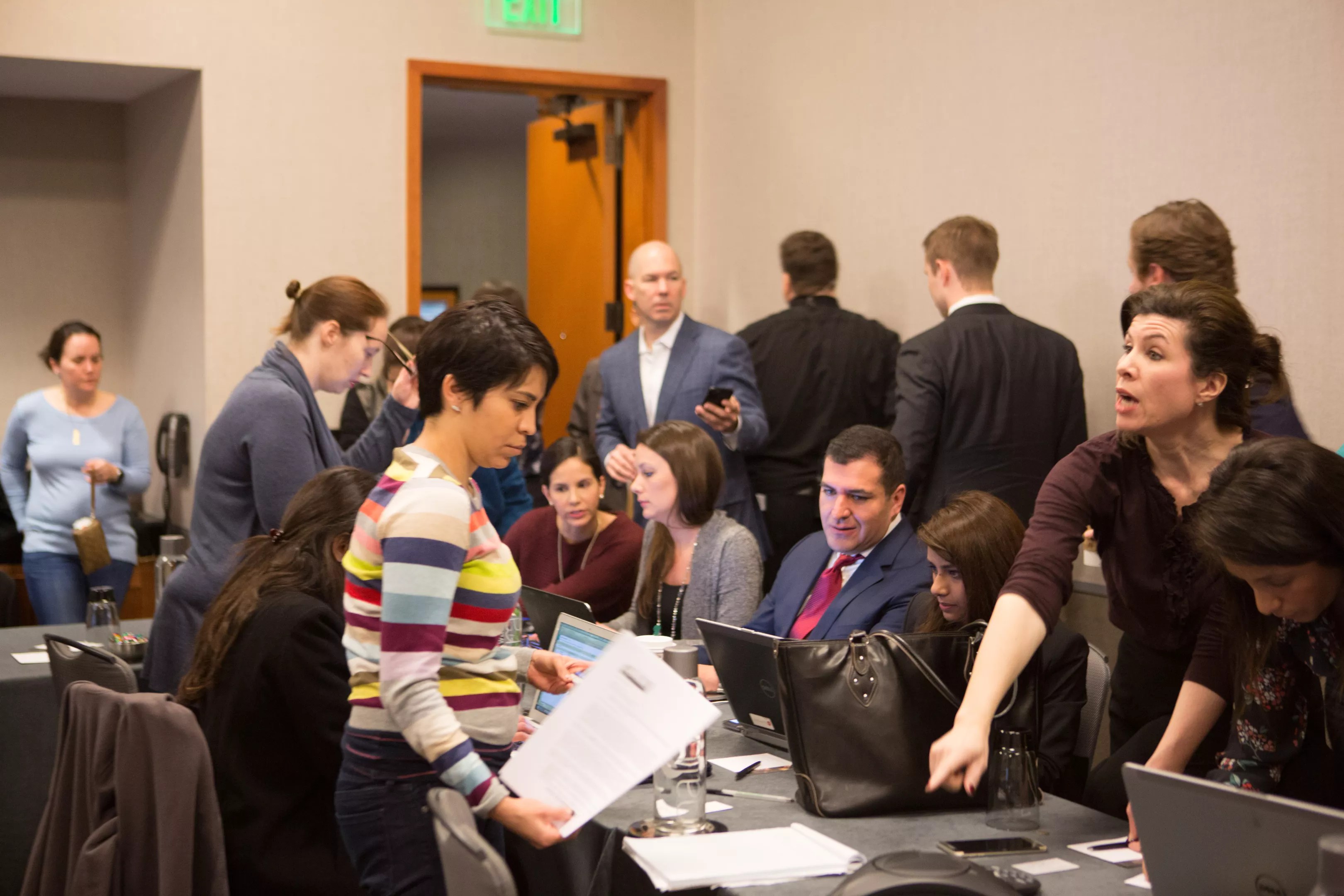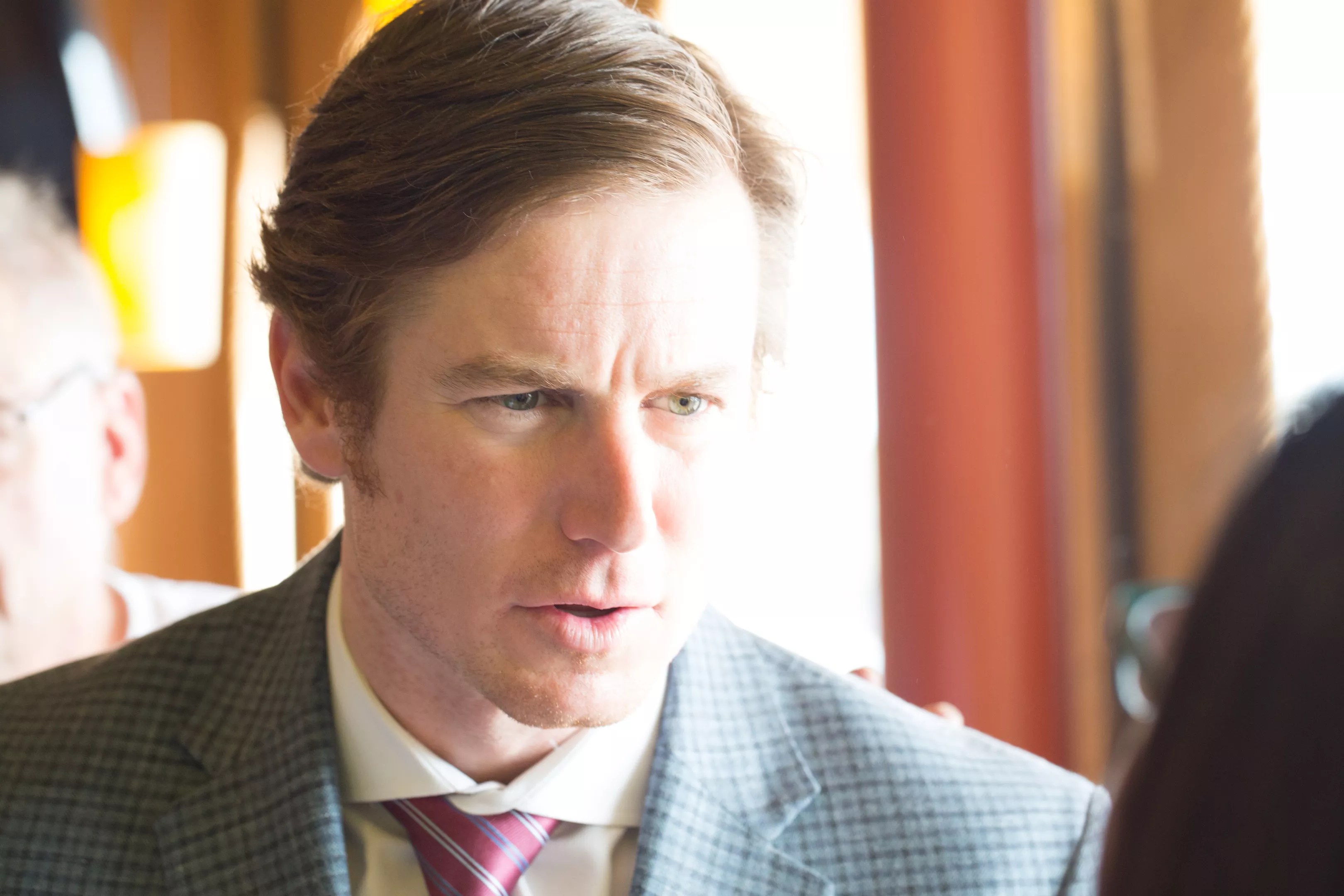
Paul Wingo

Audio By Carbonatix
In volatile times, things happen for the first time, things we’ve never seen before. New events explode into view suddenly without prelude or context. We need time afterward to digest.
I spent all last week trying to figure out why on the first night of the Trump travel ban I saw on TV more than 100 lawyers massed outside the swinging doors of the main customs section at Dallas/Fort Worth International Airport.
Similar scenes happened all over the country, instantaneously. Was it organized? I could understand that. But if not, what was it? What was the clarion call, the beacon, that roused random lawyers out of their offices, beds, movie theaters, wherever they were and drew them to the customs gates of the nation’s airports?
Last week in speaking with some of the lawyers who were at D/FW, I heard clear consistent answers for why they went, repeated by almost every lawyer with whom I spoke. One was that human beings were being held behind closed doors, out of view and anonymously, without access to legal representation, and, as lawyers, they felt they had a duty to act.
But before I get into more of their case for acting, I want to share something else with you first. Maybe it will help provide a useful context.
Matthew M. Mitzner, a commercial litigator at a major Dallas law firm, was one of the original handful of lawyers that night who sent messages to friends and colleagues asking them to come to the airport. Several told me Mitzner’s appeal was what stirred them to action.
So just for grins when I spoke with Mitzner, I asked him what the argument would be for the other side. I asked him to make the case for me that the people detained under the president’s order should not have been granted access to lawyers.
Without hesitation, Mitzner said: “They [U.S. Customs and Border Protection] were given an executive order on the basis of national security to do extra vetting. One, if in case there was someone that needed to be returned for some specific reason, allowing attorneys back in there would jeopardize safety and security.
“Two, technically it’s not until you exit customs that you are on United States soil. It’s kind of this no man’s land within those areas, so technically there’s an argument about whether or not constitutional rights can be enforced in those areas.
“And probably third, you could make an argument that by being super-transparent, if it was very clear whom we were returning and so on, we would be giving up sources and security information.”
For a guy who’s not even an immigration attorney and speaking off the cuff for the opposing side, that’s not too shabby, is it? So what is my point?
I think it’s the most important point in this event and very much at the heart of it. Of the lawyers I was able to reach who had been in that crowd that night or were out there on subsequent days, I didn’t hear a single one who sounded like a raving bug-eyed Trump-hater. A few Trump dislikers maybe, but no crazy haters. Some may have been conservative, some liberal. Our conversations didn’t really get to that.
Like Mitzner, they all understood there were arguments on both sides. They just wanted to hear and argue those arguments. By making people simply disappear before the arguments could even be offered, the enforcement of the ban felt to them like a big fist right through the U.S. Constitution.
They all felt that, as lawyers sworn to uphold the Constitution, they had a duty to swarm to a place where the Constitution might be flouted and trampled, just as firefighters swarm to a fire, cops to a kidnapping, doctors to a heart attack.
Paul Wingo told me: “Sometimes you just feel an ache in your belly that something is wrong. For most reasonably well-placed lawyers, we have been more concerned about our businesses, families and our own success than being civic minded. Then one day we all came down with a belly ache.
“We started calling each other and talking about what to do. How do we treat this ache? We realized nobody was quite sure what to do but that this was important.
“So, like a volunteer firefighter will put on his overalls and smoke jacket and rush to a fire, we suited up and went to the scene to try to help. It just turns out the fire we were trying to douse was on the Constitution.”
Chris Hamilton said, “You took an oath to defend the Constitution. How can you turn away?”
Misty Escobedo grew up in a conservative home in Victoria. She told me at the top, “I am not a protester.” When she got to the airport she didn’t rush to the front lines to confront the Customs people. Instead she addressed the logistical work someone had to do away from the barricades – renting a war room, getting white boards, setting up communications.
She said heeding the call was a unique and elevating experience: “We graduate from law school with student debt. We don’t always get to wear the white hat.”
Bill Holston told me, “No one was there to get publicity or gain business. Lawyers are devoted to the rule of law. We are defenders of the Constitution, and when it’s under assault, we step up.”
That particular phrase – rule of law – was the one most commonly uttered by the lawyers with whom I spoke. That’s why they were there. The rule of law is everything to them – the foundation for civilization and freedom itself. In their view, boxing is only boxing if you do it within the ring and within the rules. The other thing is called assault.
The lawyers at the airport saw plenty of evidence that the travel ban was being prosecuted outside the boxing ring, outside the rule of law. Angela Hunt told me, “The only way we knew who was being detained was from family members who walked up to attorneys and said, ‘Hey, Uncle Johnny has not come out for four hours. I think something’s up.’ The federal employees wouldn’t tell us.”
She said on more than one occasion Customs officials told the lawyers everyone had been released. Then lawyers learned from their ad hoc communications network that someone was in fact still being held.
“We get a phone call from an immigration attorney who is talking to the brother of a guy being held right there, while the Customs people are looking us in the eye saying no one is still detained.”
On Jan. 28, U.S. District Judge Allison D. Burroughs in Boston and federal District Judge Ann Donnelly in Brooklyn both barred enforcement of the Trump travel ban for persons who would have been admitted to the country prior to the ban. But lawyers at D/FW learned late that night that Labeeb Ibrahim Issa, a badly injured driver for American troops who had been threatened with reprisals in Iraq, was still being detained after 15 hours. A fellow traveler told the lawyers Issa was in great pain.
Just after 5 a.m. on the 29th, Hamilton, Hunt and Mitzner filed a writ of habeas corpus (see below) with the U.S. District Court for the Northern District of Texas, arguing that Issa was precisely the sort of person the courts had ordered Customs to admit without undue delay. At 6:30 a.m., Customs released him.

Lawyer Chris Hamilton:
Paul Wingo
Let’s pause on that point. In some instances after the lawyers at D/FW took certain actions – maybe just naming somebody they knew was back behind the swinging doors, maybe filing a formal writ – Customs officials backed down and released people.
Think about it. Customs denies the guy’s existence. The lawyers name him. Customs releases him. I don’t know how to interpret those instances except as admissions by federal officials that the lawyers had the winning legal arguments. Can you think of another explanation?
But think about this instance. The lawyers don’t go to the airport. They go back to bed. They return to their stamp collections. They go online and review their mutual funds. They tell themselves, “Not my client, not my lookout.”
So those legal arguments that they won at the airport would never have been made. The names behind the swinging doors at Customs would not have been learned. No one might have been released, because Customs would not have been obligated by the lawyers to release anybody. Not only might some or all of those people been sent back, but you and I would not know that Customs had held or barred entry to people who had a legal right to enter the country. We only know this story because the lawyers went to the airport.
Several of the lawyers told me that their day-to-day work – especially in big firms where over time they may have clients on every side of an issue – teaches them that anybody can wind up behind the swinging doors of an issue. No one is immune.
The only thing that protects any of us when we find ourselves locked up back there is the law. The rules. The Constitution.
The lawyers all know the other side can come up with a credible legal theory. Almost all of them have been on the other side a million times. But the word is legal.
Good lawyers in one good month probably see more people in more conditions of enmity and contention with each other than the rest of us see in a lifetime. They know how hot the flame of human nature can burn when it is infused with anger and competition. They know how brutal and unfeeling we can be. In this particular country, the wall that stands between us and the coarse brutality of raw power is the Constitution.
The question of the ban’s legality is unresolved. Later another federal judge in Boston refused to extend the first judge’s seven-day temporary restraining order. A federal judge in Seattle who issued an even broader suspension of the ban was upheld by an appeals court. The president has indicated he may write a new ban to overcome problems with the first one.
However that may end, the Dallas lawyers who rushed to the airport here bore a witness that would not have taken place save for their presence. They saw what they believed to be a particularly dangerous moment in American history. They thought it was their duty to run toward that danger. And they did.
Petition.for.Writ.of.Habeas.corpus.for.Mr..Issa by Schutze on Scribd